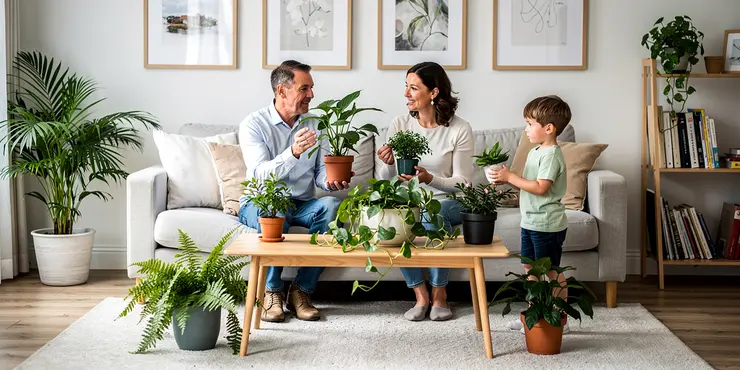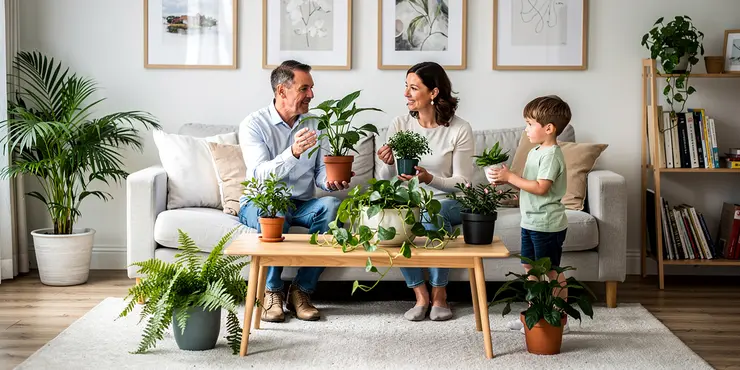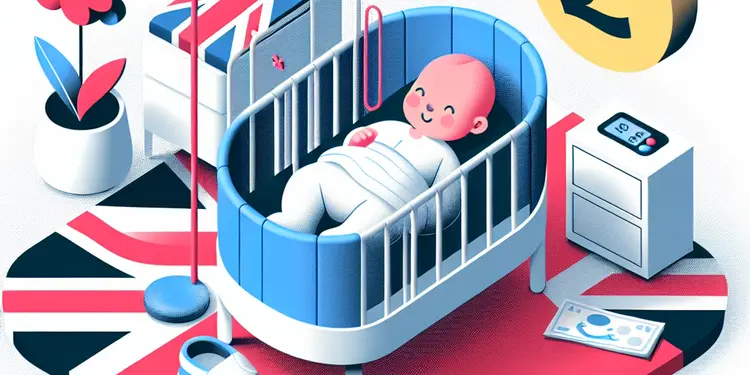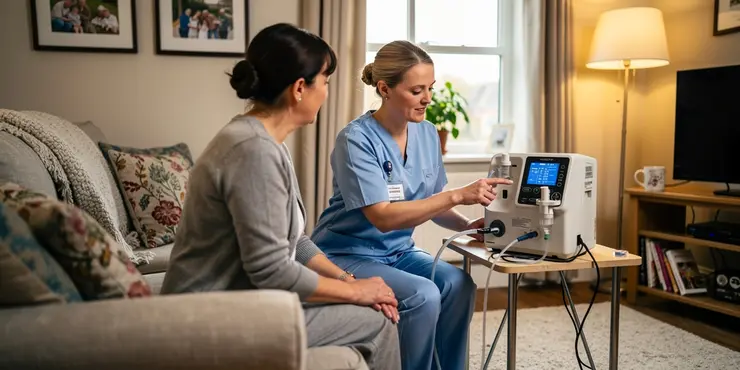
Find Help
More Items From Ergsy search
-

Building a Healthy Home Environment
Relevance: 100%
-

Healthy Family Lifestyle Tips Post-Pandemic
Relevance: 43%
-

Healthy Habits for Teens
Relevance: 43%
-

What role does the environment play in ADHD?
Relevance: 43%
-

What are the benefits of having spiders in the home?
Relevance: 41%
-

What are Healthy Start vouchers in the UK?
Relevance: 41%
-

What are Healthy Start vouchers?
Relevance: 40%
-

What are Healthy Start vouchers?
Relevance: 40%
-

How can I apply for Healthy Start vouchers?
Relevance: 39%
-

What are the environmental impacts of cremation?
Relevance: 39%
-

Top 10 Tips for Healthy Eating
Relevance: 39%
-

Can maintaining a healthy gut help slow down aging?
Relevance: 38%
-

Are woodland burials environmentally friendly?
Relevance: 38%
-

Does the surveyor's report cover environmental risks?
Relevance: 38%
-

Is the flu jab necessary for healthy individuals?
Relevance: 38%
-

Who is eligible for Healthy Start vouchers?
Relevance: 38%
-

What are Care Homes?
Relevance: 38%
-

What environmental considerations are there for ground burials?
Relevance: 37%
-

What types of fats are healthy to consume?
Relevance: 37%
-

Who is eligible for Healthy Start vouchers?
Relevance: 37%
-

How are care homes different from nursing homes?
Relevance: 37%
-

What is the safest sleep environment for an infant?
Relevance: 37%
-

What is the work environment like at the National Trust?
Relevance: 37%
-

What can I buy with Healthy Start vouchers?
Relevance: 37%
-

Who can live in a care home?
Relevance: 37%
-

What foods support a healthy gut microbiome?
Relevance: 37%
-

How can I apply for Healthy Start vouchers?
Relevance: 36%
-

Are there different types of care homes?
Relevance: 36%
-

Are urban environments related to the loneliness epidemic?
Relevance: 36%
-

Is sunflower oil a healthy cooking oil?
Relevance: 36%
-

Can environmental factors contribute to type 1 diabetes?
Relevance: 35%
-

The role of residential and nursing homes
Relevance: 34%
-

Are there home remedies for psoriasis?
Relevance: 34%
-

Supreme Court to Hear Landmark Case on Environmental Regulations
Relevance: 34%
-

The role of residential & nursing homes
Relevance: 34%
-

Do mosquito screens add value to my home?
Relevance: 34%
-

Fire Safety At Home
Relevance: 34%
-

How do I choose a good nursing home?
Relevance: 34%
-

How can I choose the right care home?
Relevance: 33%
-

Home dialysis help for kidney patients
Relevance: 33%
Building a Healthy Home Environment
Understanding Indoor Air Quality
Indoor air quality significantly impacts health, comfort, and wellbeing. In the UK, homes are often well-insulated, making it crucial to ensure proper ventilation to avoid the buildup of pollutants. Use air purifiers, regularly clean ventilation systems, and introduce houseplants which can help filter the air. Aiming to reduce indoor humidity levels can also prevent mould growth, which is a common issue in damp British climates.
Choosing Non-Toxic Materials
Construction and furnishing materials often contain harmful chemicals like volatile organic compounds (VOCs). When renovating or decorating, opt for non-toxic paints, varnishes, and sustainable materials like bamboo or reclaimed wood. Check for products with low or zero VOCs to create a safer living environment. Moreover, using natural cleaning products can reduce exposure to unnecessary chemicals.
Ensuring Adequate Lighting
Proper lighting is crucial for a healthy home environment. Maximise natural light by using light-coloured paints and strategically placing mirrors to reflect daylight. In the often overcast UK weather, supplement with full-spectrum artificial lighting that mimics natural light to help regulate sleep patterns and improve mood. Make sure to have both task lighting for specific activities and ambient lighting to create a comfortable and functional living space.
Maintaining a Clean and Clutter-Free Space
Cleanliness directly correlates with physical and mental health. Regular cleaning helps to eliminate dust, allergens, and pathogens. Use a vacuum with a HEPA filter to reduce airborne particles. Decluttering not only makes the space more visually appealing but also reduces stress and improves focus. Implement storage solutions to keep things organised and easily accessible, making your home more functional and comfortable.
Incorporating Green Spaces
Green spaces have a profound impact on mental health and wellbeing. If you have a garden, consider planting flowers, shrubs, and trees that can thrive in the UK climate. Even in urban settings, window boxes, indoor plants, or a small balcony garden can provide a much-needed connection to nature. Regularly engaging with these green spaces can reduce stress and enhance overall health.
Prioritising Noise Control
Noise pollution can disturb sleep and lead to stress and anxiety. Ensure your home is quiet by using soundproofing techniques like double-glazing windows, installing carpets, and using heavy curtains. Soundproofing materials can reduce external noise and help create a more peaceful living environment, essential for maintaining mental health in busy urban areas.
By focusing on these key areas, you can build a healthier home environment that promotes physical wellbeing and mental peace, perfectly suited for the unique living conditions in the United Kingdom.
Building a Healthy Home Environment
Understanding Indoor Air Quality
Indoor air is the air inside our house. Good air is very important for health and happiness. Many homes in the UK keep heat in very well, so we need to let fresh air in. Use air cleaners, clean air vents often, and add plants in your home to help the air stay fresh. Keeping the air dry can stop mould from growing, which can be a problem because the UK is very wet.
Choosing Non-Toxic Materials
Some materials used in buildings and furniture can have bad chemicals. When you paint or decorate, choose safe paints and natural materials like bamboo or old wood. Look for items that do not have harmful chemicals. Also, try using natural cleaning products to lower the chances of chemical exposure.
Ensuring Adequate Lighting
Good lighting is very important in your home. Let in as much natural light as you can. Use light paint colours and mirrors to make rooms brighter. In the UK, it can be cloudy, so use good artificial lights that are like sunlight. These help you sleep and feel better. Have enough lights for tasks and for relaxing.
Maintaining a Clean and Clutter-Free Space
Keeping your home clean is good for your body and mind. Clean often to get rid of dust and germs. Use a vacuum cleaner with a special filter to help. Keep your space tidy to feel less stressed and more focused. Use storage boxes to keep things in order and easy to find.
Incorporating Green Spaces
Having green spaces, like gardens, can make you feel better. Plant flowers, shrubs, and trees that grow well in the UK. Even if you live in a city, you can have plants on your window, inside, or on a small balcony. Spending time with plants helps reduce stress and makes you healthier.
Prioritising Noise Control
Too much noise can stop you from sleeping and make you anxious. Make your home quiet with double-glazed windows, carpets, and thick curtains. These things help keep noise out and make your home more peaceful. This is important for feeling calm, especially in busy cities.
By focusing on these areas, you can make your home a healthier place. It helps you feel good in both body and mind, perfect for living in the UK.
Frequently Asked Questions
What are the key steps to maintaining good air quality indoors?
Maintaining good indoor air quality involves regular ventilation, using air purifiers, avoiding smoking indoors, and reducing the use of chemical-based cleaning products.
How often should I clean and replace air filters in my home?
Air filters should generally be checked monthly and replaced at least every 3 months, or more frequently if you have pets or allergies.
What are the benefits of using eco-friendly cleaning products?
Eco-friendly cleaning products reduce exposure to harmful chemicals, are safer for the environment, and can help alleviate allergy and asthma symptoms.
What measures can I take to reduce mould growth in my home?
To reduce mould growth, ensure good ventilation, use dehumidifiers, fix any water leaks promptly, and regularly clean high-humidity areas such as bathrooms.
Why is regular maintenance of heating and cooling systems important?
Regular maintenance of heating and cooling systems ensures efficient operation, reduces energy costs, prolongs the life of the equipment, and helps maintain better air quality.
How can I test for radon in my home?
Radon test kits can be purchased online or from DIY stores. Follow the instructions for placing the test kit in your home and send it to a lab for analysis.
What are some ways to reduce allergens in my home?
Reduce allergens by regularly cleaning and vacuuming, using dust mite covers on bedding, keeping pets out of bedrooms, and using HEPA filters in vacuum cleaners.
How can I create a healthy sleep environment?
Create a healthy sleep environment by using a comfortable mattress, keeping the bedroom cool and dark, reducing noise, and maintaining a regular sleep schedule.
What are the health benefits of having houseplants?
Houseplants can improve air quality, reduce stress, increase humidity, and create a more pleasant and aesthetically pleasing living environment.
How can I safely store cleaning products and chemicals in my home?
Store cleaning products and chemicals in a cool, dry place out of reach of children and pets, and ensure they are clearly labeled and tightly sealed.
What are the best practices for reducing indoor humidity levels?
Reduce indoor humidity by using dehumidifiers, ensuring proper ventilation, fixing leaks promptly, and avoiding using excessive amounts of hot water.
How can I improve natural lighting in my home?
Improve natural lighting by using light-colored curtains and walls, strategically placing mirrors, and keeping windows clean and unobstructed.
Why is it important to monitor carbon monoxide levels in the home?
Monitoring carbon monoxide levels is crucial because it is a colorless, odorless gas that can be harmful or fatal at high levels. Use carbon monoxide detectors to ensure safety.
What are some tips for reducing household waste?
Reduce household waste by recycling, composting organic waste, avoiding single-use plastics, and buying products with minimal packaging.
How can I ensure my drinking water is safe?
Ensure safe drinking water by using water filters, regularly testing well water, and addressing any local advisories or issues regarding water contamination.
How can we keep the air inside clean and fresh?
To keep the air in your home clean, you can do a few simple things:
- Open windows often to let fresh air in.
- Use machines called air purifiers to help clean the air.
- Do not smoke inside the house.
- Try to use cleaning products that do not have many strong chemicals.
How often should I clean and change air filters at home?
Air filters help keep the air in your home clean. Here is a simple way to keep track of them:
- Check and clean your air filters once a month.
- If they look dirty, it's time to change them.
- A good rule is to replace them every 3 months.
Tip: Set a reminder on your phone or calendar to help you remember!
Check your air filters every month. Change them every 3 months. If you have pets or allergies, you might need to change them more often.
Why is it good to use green cleaning products?
Green cleaning products are safe for people and the planet. They help to keep our homes clean without using harmful chemicals.
Here are some reasons why using green cleaning products is good:
- They are better for our health. They do not have strong chemicals that might make us sick.
- They help the Earth. They do not harm animals, plants, or water.
- They can reduce allergies. Some people sneeze or get itchy skin from strong cleaners, but not from green ones.
- They smell nice. Green cleaners often have a fresh, natural smell.
You can find green cleaning products in most stores. Look for labels that say “eco-friendly” or “natural.”
Try using things like vinegar or baking soda to clean. They are natural and work well on dirt and stains.
When you use green cleaning products, you make a good choice for you and the planet!
Eco-friendly cleaning things are better for you and the Earth. They keep away bad chemicals and can help if you have allergies or asthma.
How can I stop mould from growing in my home?
To stop mould from growing, you can do these things:
1. Let fresh air in by opening windows or using fans.
2. Use machines called dehumidifiers to make the air less wet.
3. Fix leaks quickly if you see any water coming in.
4. Clean places like the bathroom often because they can get very wet.
Why Should We Take Care of Heating and Cooling Systems?
It is important to look after things like heaters and air conditioners. Here is why:
- Helps Save Money: When you take care of these machines, they work better and last longer. This means you might spend less money on fixing or buying new ones.
- Keeps You Safe: Well-looked-after systems are safer. They help keep the air clean and reduce the chance of breakdowns.
- Works Better: Regular checks make sure everything works well, so your home stays comfy when it's hot or cold.
Here are some ways to take care of your systems:
- Change or clean filters often.
- Have a professional check the systems every year.
For help reading, you can use a ruler or your finger to follow the lines. You can also ask someone to read with you. Remember, looking after things helps them work well for a long time!
Looking after heating and cooling systems is important. It makes them work well, saves money on energy, keeps the equipment working longer, and keeps the air clean and healthy.
How can I test for radon in my home?
Radon is a gas that can be in houses. It's important to check for it. Here's how you can test for radon:
- Buy a radon test kit. You can find these at places like a hardware store or online.
- Follow the steps in the kit. They tell you where to put the tester in your home.
- Leave the tester there for the time the kit says. This could be a few days or more.
- Send the tester to a lab in the envelope that comes with the kit.
- The lab will tell you the results. They will say if the radon level is safe or too high.
If the radon level is high, you can get help from an expert to fix it.
Supportive tools and techniques:
- Ask a family member or friend to help you with the testing.
- Watch videos that show how to use a radon test kit.
You can buy radon test kits on the internet or in stores where you buy things to fix your home. Follow the steps to put the test kit in your house. Then, send it to a lab so they can check it for you.
Here are some tips to help you:
- Ask someone for help if the instructions are hard to understand.
- Watch a video online that shows how to use the test kit.
- Use tools like text-to-speech to read the instructions out loud.
How can I make my home less dusty?
To help with allergies, try these things:
- Clean and vacuum often.
- Put special covers on your bed to stop dust mites.
- Keep pets out of your bedroom.
- Use a vacuum cleaner with a HEPA filter. It helps trap tiny dirt and dust.
How can I make a good place to sleep?
Make your bedroom a nice place to sleep. Use a comfy bed, keep the room cool and dark, make it quiet, and go to bed at the same time every night.
Why are plants in the house good for you?
Having plants in your house is good! They can make the air cleaner, help you feel less stressed, add more moisture to the air, and make your home look nicer.
How can I keep cleaning products and chemicals safely at home?
Here are some tips to keep cleaning products and chemicals safe:
- Keep products out of reach of children. Use high shelves or locked cupboards.
- Don’t put cleaning stuff in food containers. Always use the original bottles.
- Read labels and follow instructions. They tell you how to use them safely.
- Use pictures or stickers to help remember what each product does.
- Add safety locks on cupboards if needed.
Using these ideas can help keep everyone safe!
Keep cleaning things and chemicals in a place that is cool and dry. Make sure children and pets cannot reach them. Label them clearly and close them tightly.
How can I make my home less damp?
To keep the air in your home dry, you can use a machine called a dehumidifier. Make sure air can move in and out of rooms by opening windows or using fans. Fix any water leaks quickly. Try not to use too much hot water.
How can I make my home brighter with natural light?
Make your home brighter by using light-colored curtains and walls. Put mirrors in smart places, and keep your windows clean and clear.
Why should we check carbon monoxide in the home?
Carbon monoxide is a gas we can't see or smell. It's very dangerous.
If it gets in the air at home, it can make people very sick.
Checking carbon monoxide levels helps keep people safe.
You can use a special tool called a carbon monoxide alarm to help.
Checking carbon monoxide is very important. It is a gas you can't see or smell, but it can make you very sick or even be deadly if there's too much. Use carbon monoxide alarms to stay safe.
How can I make less waste at home?
Here are some tips to help you make less waste at home:
- Recycle: Put paper, plastic, and glass in the right bins. This helps make new things.
- Compost: Use fruit and vegetable scraps to make soil. This is good for plants.
- Reuse: Use bags, bottles, and boxes again. This means less trash.
- Think before buying: Buy only what you need. This means fewer things to throw away.
- Donate: Give old clothes and toys to those who need them.
You can ask a family member or friend to help you. Try using pictures or labels to remind you what to do.
You can make less garbage at home. Try these ideas:
- Recycle things like paper, glass, and cans.
- Put food scraps in a compost bin instead of the trash.
- Say no to plastic items you use only once, like straws and bags.
- Choose products that have little or no extra packaging.
How can I make sure my drinking water is safe?
Make sure your water is safe to drink by using water filters. Test well water often to check it's clean. Listen for any local news about water problems, and fix them if there are any.
Useful Links
This website offers general information and is not a substitute for professional advice.
Always seek guidance from qualified professionals.
If you have any medical concerns or need urgent help, contact a healthcare professional or emergency services immediately.
Some of this content was generated with AI assistance. We’ve done our best to keep it accurate, helpful, and human-friendly.
- Ergsy carfully checks the information in the videos we provide here.
- Videos shown by Youtube after a video has completed, have NOT been reviewed by ERGSY.
- To view, click the arrow in centre of video.
- Most of the videos you find here will have subtitles and/or closed captions available.
- You may need to turn these on, and choose your preferred language.
- Go to the video you'd like to watch.
- If closed captions (CC) are available, settings will be visible on the bottom right of the video player.
- To turn on Captions, click settings .
- To turn off Captions, click settings again.
More Items From Ergsy search
-

Building a Healthy Home Environment
Relevance: 100%
-

Healthy Family Lifestyle Tips Post-Pandemic
Relevance: 43%
-

Healthy Habits for Teens
Relevance: 43%
-

What role does the environment play in ADHD?
Relevance: 43%
-

What are the benefits of having spiders in the home?
Relevance: 41%
-

What are Healthy Start vouchers in the UK?
Relevance: 41%
-

What are Healthy Start vouchers?
Relevance: 40%
-

What are Healthy Start vouchers?
Relevance: 40%
-

How can I apply for Healthy Start vouchers?
Relevance: 39%
-

What are the environmental impacts of cremation?
Relevance: 39%
-

Top 10 Tips for Healthy Eating
Relevance: 39%
-

Can maintaining a healthy gut help slow down aging?
Relevance: 38%
-

Are woodland burials environmentally friendly?
Relevance: 38%
-

Does the surveyor's report cover environmental risks?
Relevance: 38%
-

Is the flu jab necessary for healthy individuals?
Relevance: 38%
-

Who is eligible for Healthy Start vouchers?
Relevance: 38%
-

What are Care Homes?
Relevance: 38%
-

What environmental considerations are there for ground burials?
Relevance: 37%
-

What types of fats are healthy to consume?
Relevance: 37%
-

Who is eligible for Healthy Start vouchers?
Relevance: 37%
-

How are care homes different from nursing homes?
Relevance: 37%
-

What is the safest sleep environment for an infant?
Relevance: 37%
-

What is the work environment like at the National Trust?
Relevance: 37%
-

What can I buy with Healthy Start vouchers?
Relevance: 37%
-

Who can live in a care home?
Relevance: 37%
-

What foods support a healthy gut microbiome?
Relevance: 37%
-

How can I apply for Healthy Start vouchers?
Relevance: 36%
-

Are there different types of care homes?
Relevance: 36%
-

Are urban environments related to the loneliness epidemic?
Relevance: 36%
-

Is sunflower oil a healthy cooking oil?
Relevance: 36%
-

Can environmental factors contribute to type 1 diabetes?
Relevance: 35%
-

The role of residential and nursing homes
Relevance: 34%
-

Are there home remedies for psoriasis?
Relevance: 34%
-

Supreme Court to Hear Landmark Case on Environmental Regulations
Relevance: 34%
-

The role of residential & nursing homes
Relevance: 34%
-

Do mosquito screens add value to my home?
Relevance: 34%
-

Fire Safety At Home
Relevance: 34%
-

How do I choose a good nursing home?
Relevance: 34%
-

How can I choose the right care home?
Relevance: 33%
-

Home dialysis help for kidney patients
Relevance: 33%


